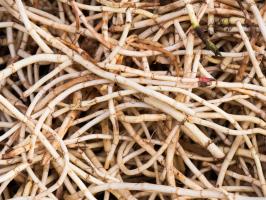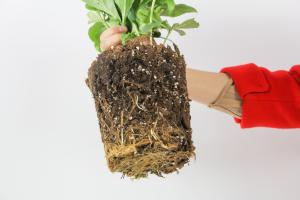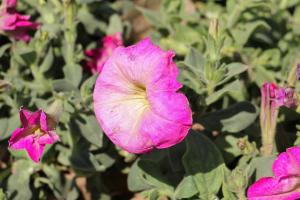Is Rain Bad for Pot Plants?
Pot plants are known for their beauty and are beloved by gardeners all over the world. As plants, they need water to survive and thrive. Rain, in particular, is an important source of water for pot plants. However, some gardeners believe that rain can be bad for pot plants. In this article, we will take a closer look at whether rain is actually bad for pot plants.
Can Rainwater Be Harmful to Pot Plants?
Rainwater is usually the purest form of water that pot plants can get. It does not contain any chemicals, such as chlorine or fluorine, that are often found in tap water. Rainwater is also free of salts that can build up in the soil and harm the plants in the long term. However, some gardeners believe that rainwater can come with its share of problems.
One such problem is the acidity of the rainwater. Rainwater tends to be slightly acidic, which can be harmful to some types of plants, including pot plants. However, the acidity of rainwater is usually not enough to cause significant harm to pot plants, especially if the soil is rich in nutrients and can buffer the pH level of the water.
Another potential issue with rainwater is that it can carry diseases and pests. Rainwater can wash off the spores and eggs of various pests and diseases and spread them to other plants in the garden. This can be a particular problem if the pot plants are located near other plants that are already infected with pests or diseases.
Benefits of Rainwater for Pot Plants
Despite the potential problems that rainwater can bring, it still remains one of the best sources of water for pot plants. Rainwater is usually soft, which means it does not contain high levels of minerals that can build up in the soil and harm the plants over time. Rainwater is also free of the chemicals found in tap water, which can sometimes be harmful to pot plants.
Rainwater also has the added benefit of being free. Unlike tap water, which can be expensive and subject to metered use in some areas, rainwater is available for free to anyone who has a pot plant and a container to catch the water.
Protecting Pot Plants from Rainwater
If you are concerned about the potential harm that rainwater can bring to your pot plants, there are several things you can do to protect them. One of the easiest and most effective ways is to use a rain barrel or other water catchment system to collect the rainwater. This allows you to control the amount of water that the plants receive and ensures that the water is free of any contaminants that may be present in the soil or surrounding plants.
You can also use a watering can or hose to apply the rainwater to the plants directly. This allows you to control the amount of water that is applied to each plant and ensures that no other plants are affected by the water.
Conclusion
In conclusion, rainwater can be both beneficial and potentially harmful to pot plants. While rainwater is usually pure and does not contain any chemicals or salts that can harm pot plants, it can also carry diseases and pests that can be harmful to the plants. However, the benefits of rainwater, including its softness and availability, far outweigh the potential risks. By using a catchment system and following proper watering practices, gardeners can ensure that their pot plants receive the best possible water, regardless of whether it comes from the rain or the tap.

 how many times do yo...
how many times do yo... how many planted tre...
how many planted tre... how many pine trees ...
how many pine trees ... how many pecan trees...
how many pecan trees... how many plants comp...
how many plants comp... how many plants can ...
how many plants can ... how many plants and ...
how many plants and ... how many pepper plan...
how many pepper plan...

































